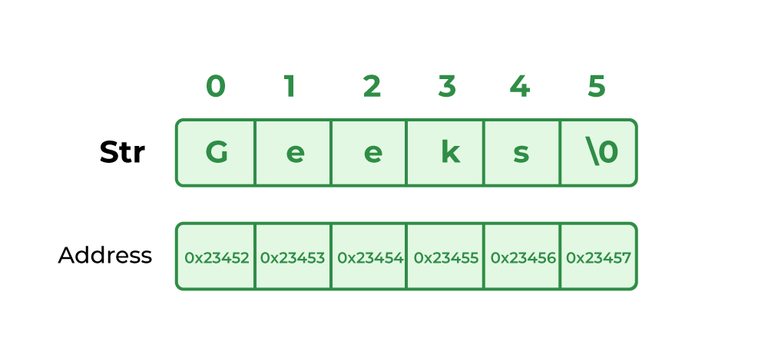Discovering the Advantages of Unalterable Strings in Modern Programming Paradigms
In the world of modern programming standards, the concept of immutable strings stands as a foundation of robust software application growth. The advantages they supply exceed mere convenience; they fundamentally alter the way data is taken care of within applications. By adopting unalterable strings, programmers can ensure enhanced data integrity, improved string safety and security, simplified debugging processes, boosted safety procedures, and reliable efficiency optimization. These advantages work as a testament to the profound impact that welcoming immutability can carry the integrity and efficiency of software program systems.
Enhanced Information Stability

By avoiding the alteration of string objects, immutability gets rid of the risk of unintended changes to the data they hold. This not only boosts the security of the info but likewise boosts the reliability of the code that depends on these strings.
Immutability likewise supports much safer multithreading environments, as concurrent accessibility to immutable strings does not present the danger of information corruption through synchronised modifications. This building streamlines the process of handling strings in parallel shows circumstances.
In essence, immutability functions as a protective shield around the data stored within strings, improving their honesty by guaranteeing that when defined, their values stay the same throughout the program's execution.

Improved String Security
Immutable strings improve the string security of programs by guaranteeing that once a string item is developed, its value can not be modified. This residential property removes the threat of concurrent strings trying to change the exact same string concurrently, which could lead to information corruption or irregular states in the program - Why are strings immutable in Java?. In a multi-threaded atmosphere, where multiple strings accessibility and adjust information concurrently, the immutability of strings offers a level of safety by assuring that the data stays unchanged throughout its lifecycle
Streamlined Debugging Processes
Offered the enhanced string safety facilitated by unalterable strings, a considerable benefit develops in the world of streamlined debugging procedures. Unalterable strings, when created, can not be changed, making it easier to map the flow of information and determine the resource of insects in a program. This immutability makes sure that strings continue to be regular throughout the execution of the program, reducing the probability of unexpected adjustments that might result in mistakes.
When debugging with mutable strings, developers often run into concerns where a string's value is changed unintentionally, making it testing to pinpoint the root cause of a bug. Nevertheless, with immutable strings, the information continues to be unmodified, enabling programmers to concentrate on analyzing the actual reasoning of the code instead than locating where and when a string was changed incorrectly.
Furthermore, immutable strings streamline the debugging process by enabling simpler recreation of bugs. Because unalterable strings do not change state, designers can recreate and examine insects better, causing quicker identification and resolution of issues within the codebase. This structured debugging process inevitably adds to higher software program top quality and improved total advancement effectiveness.

Raised Safety And Security Steps
Enhancing data protection and strengthening system stability, the utilization of unalterable strings in software application applications adds considerably to boosted safety steps. Immutable strings, as soon as developed, can not be customized, providing an essential defense against malicious meddling or unauthorized accessibility. By ensuring that sensitive information kept in strings continues to be unaltered throughout the program's execution, the risk of information breaches or shot attacks is substantially lowered. Why are strings immutable in Java?. Immutable strings likewise play hop over to here an important role in protecting against common protection susceptabilities such as barrier overflows and SQL injection strikes, as efforts to adjust string data at runtime are naturally restricted.
In addition, the immutability of strings improves the predictability of program actions, making it less complicated to confirm inputs and avoid unanticipated modifications that can endanger security. This predictability simplifies the process of auditing and verifying code, making it possible for programmers to recognize potential safety and security loopholes better. On the whole, integrating unalterable strings into software development practices not only improves the robustness and integrity of applications yet additionally Visit This Link enhances their resilience against safety and security dangers.
Effective Performance Optimization
Building upon the structure of boosted safety and security measures attained through the application of immutable strings, a crucial aspect to consider in software program growth is effective performance optimization. When handling mutable strings, procedures like concatenation or substring development commonly lead to the creation of new string things, resulting in memory expenses and raised processing time. Nonetheless, with unalterable strings, these operations can be maximized to boost efficiency. By enabling strings to remain unchangeable and continuous, unalterable strings help with much better memory monitoring and caching chances, eventually boosting the overall efficiency of the software application.
Immutable strings also play a critical function in multithreaded atmospheres by advertising thread security. Why are strings immutable in Java?. Considering that unalterable strings can not be modified once developed, they can be shared across strings without the threat of unanticipated modifications, lowering the need for synchronization systems and enhancing concurrency. Furthermore, immutable strings simplify debugging procedures as programmers can trust that a string's worth will certainly stay consistent throughout the program's execution, getting rid of possible mistakes triggered by mutable state changes. Finally, the usage of unalterable strings not just enhances safety and security but also dramatically adds to the effective performance optimization of contemporary software systems.
Conclusion
In final thought, the advantages of utilizing immutable strings in modern-day programming standards can not be overstated. Improved information integrity, enhanced thread security, streamlined debugging processes, enhanced safety measures, and reliable efficiency optimization all contribute to the overall effectiveness of programs tasks. By click to find out more incorporating unalterable strings into programs practices, developers can take advantage of a more robust and reliable codebase.
Immutability, a vital attribute of strings in shows languages such as Java and Python, makes sure that when a string item is produced, it can not be modified or changed.Unalterable strings enhance the string safety of programs by making sure that when a string item is created, its worth can not be modified. Immutable strings also play an important function in avoiding common protection susceptabilities such as barrier overflows and SQL injection attacks, as attempts to adjust string data at runtime are inherently restricted.
By permitting strings to remain unchangeable and constant, immutable strings facilitate far better memory monitoring and caching possibilities, eventually increasing the general efficiency of the software application.
Immutable strings streamline debugging procedures as programmers can trust that a string's value will certainly remain consistent throughout the program's implementation, eliminating prospective errors created by mutable state changes.
Comments on “Why Are Strings Immutable in Java? Comprehending the Core Principles”